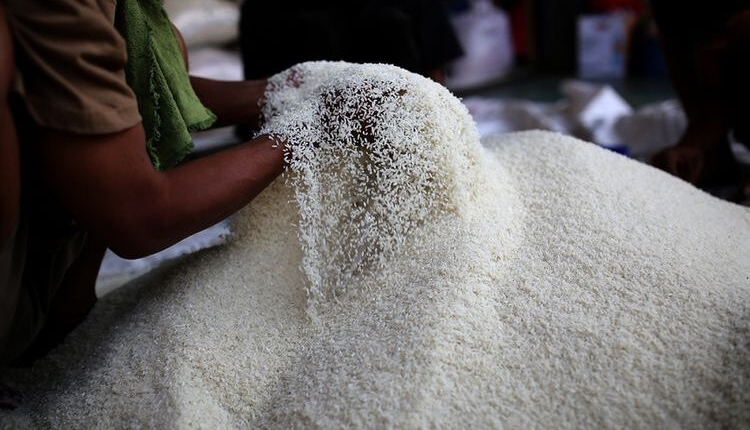Government Guarantees Rice Stocks Amid Uncertain Global Situation
The instability of global conditions, especially in terms of food distribution and production, has become a major concern for many countries around the world. However, the government has ensured that rice stocks during Ramadan or in March 2024 will be safe. One of the policies emphasized by the government is increasing domestic rice production.
By encouraging rice production at the local level, Indonesia can reduce dependence on rice imports from other countries which may be affected by external factors such as climate change or geopolitical conflicts. This step not only ensures the availability of sufficient rice for domestic needs, but also supports economic growth at the local level and increases the country’s food independence.
When the government states that national rice stocks will continue to be met, this gives people confidence that their basic food needs will be guaranteed. The availability of sufficient rice will also help maintain inflation and stabilize food prices, which in turn will reduce economic pressure on society.
Secretary of the Coordinating Ministry for Economic Affairs, Susiwijono Moegiarso, guarantees that by mid-March 2024 rice stocks will be safe. This is because the government is also busy importing rice, and there will also be a big harvest taking place in March. In East Java, 239 thousand hectares of rice harvest is predicted to occur in March 2024 and 300 thousand hectares are predicted to be harvested in April. So it is estimated that the March rice harvest will produce 3.51 million tons of rice.
For this reason, the Main Director of Perum Bulog, Bayu Krisnamurthi, appealed to the public not to worry about the availability of rice stocks. Bayu believes that natural factors cannot be avoided. The El Nino storm that hit also affected production, which was reduced due to crop failure in a number of areas.
Apart from the natural factor El Nino, Bayu also touched on farmers’ need for expensive fertilizer. This also affects rice productivity because not all farmers’ fertilizer needs are met. However, now, rice supplies are approaching normal, especially during the momentum of Ramadan and Eid al-Fitr 1445 Hijriah. So, people don’t need to worry about rice stocks.
Meanwhile, the Head of the National Food Agency (Bapanas), Arief Prasetyo Adi, said that according to calculations by the Central Statistics Agency (BPS), production and consumption in the first two months of 2024 experienced a deficit of 2.8 million tons. This forced the government to issue a measured rice import policy to secure the Government Rice Reserve (CBP) stock.
Bapanas has set the minimum rice stock managed by Perum Bulog at 1.2 million tonnes. Even President Joko Widodo asked for stocks to continue to be strengthened to reach 3 million tons. With a sufficient stock of Government Food Reserves (CPP), the government will be free to implement intervention programs for food stabilization. Strengthening CPP stocks must of course still prioritize domestic production.
Currently, Bulog’s rice distribution is not only concentrated in Jabodetabek. Jakarta and Banten 246 thousand tons, West Java 129 thousand tons, Central Java 98 thousand tons, East Java 344 thousand tons, DYI 20 thousand tons, Bali 9 thousand tons. Meanwhile, Bulog NTB stock is 6.09 tons, NTT 31 thousand tons, Aceh 25 thousand tons, North Sumatra 69 thousand tons, Riau and Riau Islands 21 thousand tons, West Sumatra 18 thousand tons, Bengkulu 1,700 tons, Lampung 71 thousand tons.
Meanwhile in East Kalimantan 9.5 thousand tons, West Kalimantan 17 thousand tons, Central Kalimantan 5 thousand tons, South Kalimantan 7.4 thousand tons, South-West Sulawesi 68 thousand tons, Gorontalo and North Sulawesi 29 thousand tons, Central Sulawesi 12 thousand tonnes, Southeast Sulawesi 11 thousand tonnes, Maluku 15 thousand tonnes, Papua 18 thousand tonnes.
According to data from the National Food Agency, Perum Bulog’s stock is in warehouses and in transit or imported. In total, 791 thousand tons are in warehouses and 527 thousand tons are in transit or imported. SPHP distribution by Bulog has reached 352 thousand tons, for food aid it has reached 330 thousand tons, then for the budget group 9.5 thousand tons and emergency response 61 tons. In total, Bulog’s distribution has reached 692 thousand tons.
The government has made efforts to increase efficiency in rice distribution nationally. By improving distribution infrastructure and optimizing logistics systems, rice can be distributed more efficiently throughout Indonesia, even to areas that are difficult to reach. This will help avoid rice shortages in remote areas, as well as ensure that all levels of society have equal access to rice supplies.These steps reflect the government’s commitment to protecting the country’s food sovereignty and public welfare. By ensuring that national rice stocks remain fulfilled, the government has provided certainty to the public, reduced concerns about possible rice shortages, and maintained food price stability which is important for people’s daily lives.
